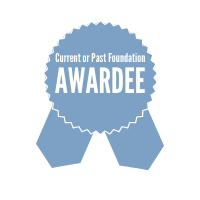Clinical Obstetrics
Poster Session 2
(547) Can need for intervention at 1 Week Mood Check Predict Postpartum Depression: A cohort study
.jpg)
Jennifer Okunbor, BS
Duke University School of Medicine
Durham, NC, United States- SL
Siera Lunn, BS
Duke University School of Medicine
Durham, NC, United States - MA
Maame Amoako, BS
Duke University School of Medicine
Durham, NC, United States - EO
Ebun Olunuga, BA
Duke University School of Medicine
Durham, NC, United States - AB
Adwoa Baffoe-Bonnie, BS
Duke University School of Medicine
Durham, NC, United States - AW
Annie West-Honart, MD
Duke University Hospital
Durham, NC, United States 
Sarah K. Dotters-Katz, MD
Associate Professor
Duke University Medical Center
Durham, NC, United States
Primary & Presenting Author(s)
Coauthor(s)
Despite postpartum(PP) mood disorders affecting up to 20% of new mothers, these conditions are often undiagnosed and untreated. There is growing interest in determining a way to detect the emergence of these conditions earlier so intervention can be implemented to reduce the severity of these disorders. The objective of this study is to determine whether there are need for intervention at 1-wk mood check(MC) predicted the development of PP depression(PPD) by the postpartum visit.
Study Design:
Retrospective cohort study of high-risk postpartum patients at one tertiary center from 4/1/2020-3/31/2022 who had 1wk MC and attended PP visit. Patients who did not attend PP visit or who were missing EPDS at PP visit excluded. Demographic data, pregnancy characteristics, and labor/delivery information abstracted. The exposure of interest was PPD(EPDS>13 at PP visit). Primary outcome was need for intervention at 1wk MC(defined as: new/change in medications or referrals). Secondary outcomes were need for psych intervention at MC, expression of sadness at MC and expression of anxiety at MC. Bivariate statistics used to analyze data. Regression models used to control for confounders.
Results:
Of the 240 patients who had mood checks, 40(16.7%) were diagnosed with PPD at PP visit. No demographic or obstetric variables other than pre-existing depression(p=0.02) and cocaine use during pregnancy(p=0.01) were significantly associated with PPD. No differences in need for intervention at MC, psych intervention, or expression of sadness or anxiety seen between those with and w/o PPD(Table). Controlling for pre-existing depression and cocaine use, expressing sadness at the mood check was associated with development of PPD(aOR 2.24, 95%CI 1.05, 4.678) while no type of intervention at MC or expression of anxiety were associated with PPD(Table 1).
Conclusion:
The 1-week MC may be a beneficial checkpoint as an opportunity to provide interventions to address emerging postpartum depression.


